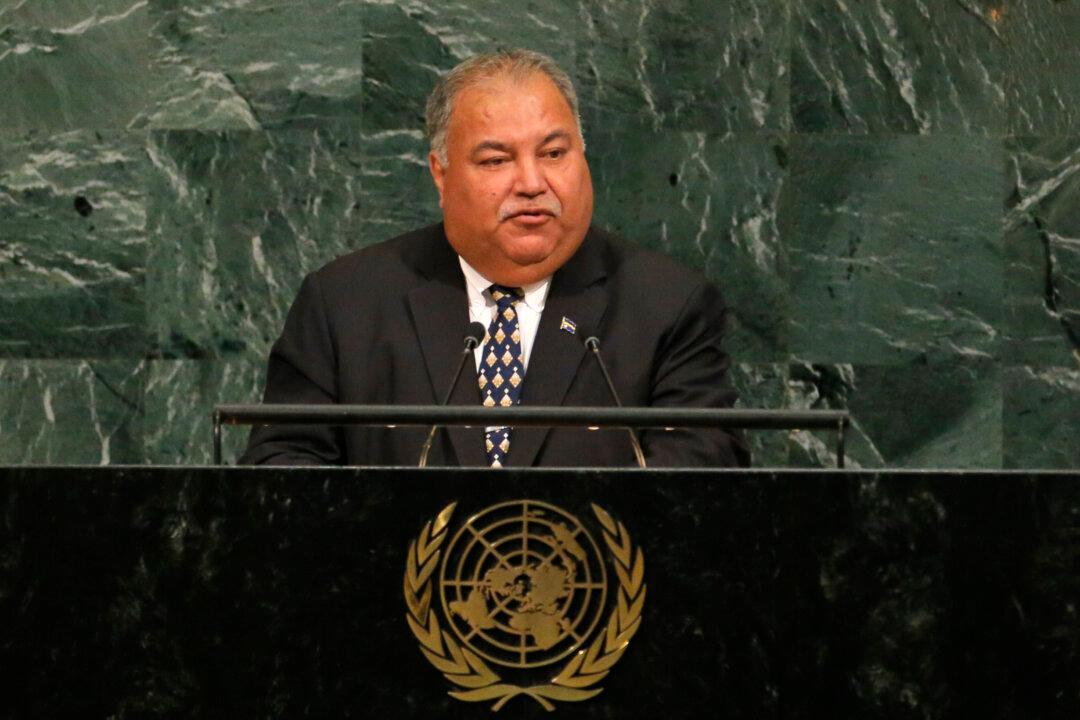WELLINGTON/SYDNEY—The tiny Micronesian state of Nauru is demanding a formal apology from China after a dispute with China’s representative at this week’s Pacific Islands Forum brought to the surface tensions with Beijing over its support for Taiwan.
Nauru, an island country of roughly 12,000 inhabitants, hosted leaders of 18 Pacific nations, plus delegations from non-member countries including the United States and China, for the forum.





